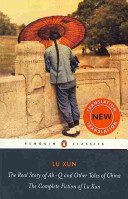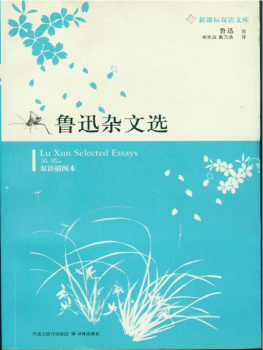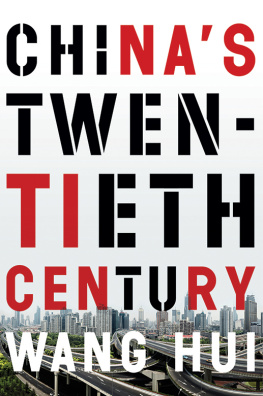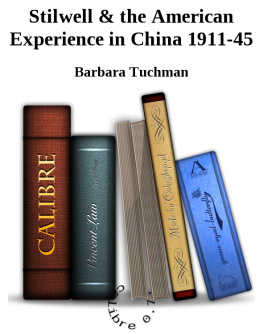
Lu Xun
The True Story of Ah-Q
For several years now I have been meaning to write the true story of Ah Q. But while wanting to write I was in some trepidation, too, which goes to show that I am not one of those who achieve glory by writing; for an immortal pen has always been required to record the deeds of an immortal man, the man becoming known to posterity through the writing and the writing known to posterity through the man-until finally it is not clear who is making whom known. But in the end, as though possessed by some fiend, I always came back to the idea of writing the story of Ah Q.
And yet no sooner had I taken up my pen than I became conscious of tremendous difficulties in writing this far-from-immortal work. The first was the question of what to call it. Confucius said, "If the name is not correct, the words will not ring true"; and this axiom should be most scrupulously observed. There are many types of biographies: official biographies, autobiographies, unauthorized biographies, legends, supplementary biographies, family histories, sketches but unfortunately none of these suited my purpose. "Official biography?" This account will obviously not be included with those of many eminent people in some authentic history. "Autobiography?" But I am obviously not Ah Q. If I were to call this an "unauthorized biography," then where is his "authenticated biography"? The use of "legend" is impossible, because Ah Q was no legendary figure. "Supplementary biography"? But no president has ever ordered the National Historical Institute to write a "standard life" of Ah Q. It is true that although there are no "lives of gamblers" in authentic English history, the famous author Conan Doyle nevertheless wrote Rodney Stone; [1] but while this is permissible for a famous author it is not permissible for such as I. Then there is "family history"; but I do nor know whether I belong to the same family as Ah Q or not, nor have his children or grandchildren ever entrusted me with such a task. If I were to use "sketch," it might be objected that Ah Q has no "complete account." In short, this is really a "life," but since I write in vulgar vein using the language of hucksters and pedlars, I dare not presume to give it so high-sounding a title. So from the stock phrase of the novelists, who are not reckoned among the Three Cults and Nine Schools. [2] "Enough of this digression, and back to the true story!" I will take the last two words as my title; and if this is reminiscent of the True Story of Calligraphy [3] 3 of the ancients, it cannot be helped.
The second difficulty confronting me was that a biography of this type should start off something like this: "So-and-so, whose other name was so-and-so, was a native of such-and-such a place"; but I don't really know what Ah Q's surname was. Once, he seemed to be named Chao, but the next day there was some confusion about the matter again. This was after Mr. Chao's son had passed the county examination, and, to the sound of gongs, his success was announced in the village. Ah Q, who had just drunk two bowls of yellow wine, began to prance about declaring that this reflected credit on him too, since he belonged to the same clan as Mr. Chao, and by an exact reckoning was three generations senior to the successful candidate. At the time several bystanders even began to stand slightly in awe of Ah Q. But the next day the bailiff summoned him to Mr. Chao's house. When the old gentleman set eyes on him his face turned crimson with fury and he roared:
"Ah Q, you miserable wretch! Did you say I belonged to the same clan as you?"
Ah Q made no reply.
The more he looked at him the angrier Mr. Chao became, and advancing menacingly a few steps he said, "How dare you talk such nonsense! How could I have such a relative as you? Is your surname Chao?"
Ah Q made no reply, and was planning a retreat, when Mr. Chao darted forward and gave him a slap on the face.
"How could you be named Chao!-Do you think you are worthy of the name Chao?"
Ah Q made no attempt to defend his right to the name Chao, but rubbing his left cheek went out with the bailiff. Once outside, he had to listen to another torrent of abuse from the bailiff, and thank him to the tune of two hundred cash. All who heard this said Ah Q was a great fool to ask for a beating like that. Even if his surname were Chao-which wasn't likely-he should have known better than to boast like that when there was a Mr. Chao living in the village. After this no further mention was made of Ah Q's ancestry, so that I still don't know what his surname really was.
The third difficulty I encountered in writing this work was that I don't know how Ah Q's personal name should be written either. During his lifetime everybody called him Ah Quei, but after his death not a soul mentioned Ah Quei again; for be was obviously not one of those whose name is "preserved on bamboo tablets and silk." [4] If there is any question of preserving his name, this essay must be the first attempt at doing so. Hence I am confronted with this difficulty at the outset. I have given the question careful thought: Ah Quei-would that be the "Quei" meaning cassia or the "Quei" meaning nobility? If his other name had been Moon Pavilion, or if he had celebrated his birthday in the month of the Moon Festival, then it would certainly be the "Quei" for cassia. [5] But since he had no other name-or if he had, no one knew it-and since he never sent out invitations on his birthday to secure complimentary verses, it would be arbitrary to write Ah Quei (cassia). Again, if he had had an elder or younger brother called Ah Fu (prosperity), then he would certainly be called Ah Quei (nobility). But he was all on his own: thus there is no justification for writing Ah Quei (nobility). All the other, unusual characters with the sound Quei are even less suitable. I once put this question to Mr. Chao's son, the successful county candidate, but even such a learned man as he was baffled by it. According to him, however, the reason why this name could not be traced was that Chen Tu-hsiu [6] had brought out the magazine New Youth, advocating the use of the Western alphabet, so that the national culture was going to the dogs. As a last resort, I asked someone from my district to go and look up the legal documents recording Ah Q's case, but after eight months he sent me a letter saying that there was no name anything like Ah Quei in those records. Although uncertain whether this was the truth or whether my friend had simply done nothing, after failing to trace the name this way I could think of no other means of finding it. Since I am afraid the new system of phonetics has not yet come into common use, there is nothing for it but to use the Western alphabet, writing the name according to the English spelling as Ah Quei and abbreviating it to Ah Q. This approximates to blindly following the New Youth magazine, and I am thoroughly ashamed of myself; but since even such a learned man as Mr. Chao's son could not solve my problem, what else can I do?
My fourth difficulty was with Ah Q's place of origin. If his surname were Chao, then according to the old custom which still prevails of classifying people by their districts, one might look up the commentary in The Hundred Surnames [7] and find "A native of Tienshui in Kansu Province." But unfortunately this surname is open to question, with the result that Ah Q's place of origin must also remain uncertain. Although he lived for the most part in Weichuang, he often stayed in other places, so that it would be wrong to call him a native of Weichuang. It would, in fact, amount to a distortion of history.
The only thing that consoles me is the fact that the character "Ah" is absolutely correct. This is definitely not the result of false analogy, and is well able to stand the test of scholarly criticism. As for the other problems, it is not for such unlearned people as myself to solve them, and I can only hope that disciples of Dr. Hu Shih, who has such "a passion for history and antiquities," [8] may be able in future to throw new light on them. I am afraid, however, that by that time my True Story of Ah Q will have long since passed into oblivion.
Next page

